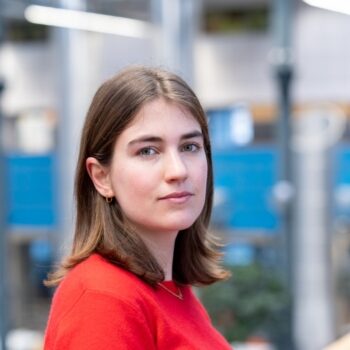Automation of Mobility in Organizations
Graduation projects on technology adoption; challenges, benefits, and implementation of automating mobility in organizations.
Autonomous technologies have experienced a fast-paced development in the past decades, resulting in an increased number of solutions that rely on automation. In organizations, autonomous technologies could bring many benefits, as they offer the potential to, for instance, increase the efficiency and precision of operations, to compensate human workers’ limitations in uncomfortable and repetitive physical tasks, or to reduce labor-related costs. Nevertheless, new challenges (e.g., human element issues, new weaknesses within the system, liability concerns, etc.), make adoption and implementation hard to realize. This difficulty is even more critical in organizations that could be modeled as ‘socio-technical systems’ (i.e., organizations where people and technology closely interact), as they present high instability degrees, uncertainty, and unpredictability, as well as dynamic operating conditions.
The graduating students will collaborate in a research project that aims to investigate the adoption of autonomous processes in socio-technical systems. Our main inquiry revolves around what the role of automation is in socio-technical systems, with the goal to elicit what technology adoption strategies could be used to ensure that this role is served.
Optionally, students could be part of the following case study: currently, an action research approach is being applied; the main researcher is embedded within the Innovation Hub of an international airport, Amsterdam Schiphol Airport (The Royal Schiphol Group), to investigate the steps that could lead to the ambition of a future autonomous airside (see video below), where passengers, autonomous vehicles, staff members and autonomous equipment are expected to cohabitate. Thus, graduating students will be able to participate in site visits, as well as to access stakeholders in the aviation sector.
Interested? Want to know more about specific assignments? Reach out to Garoa Gomez Beldarrain
